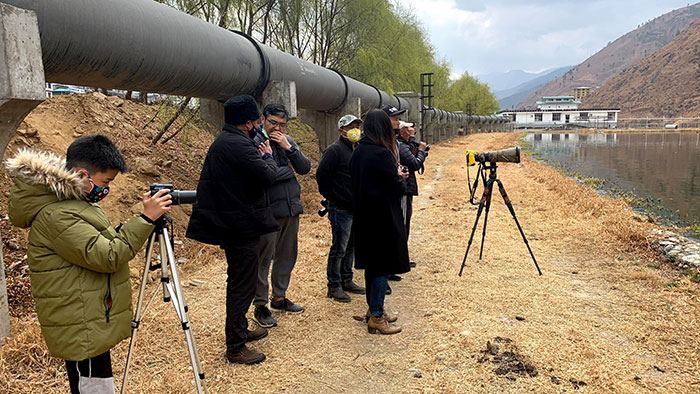Choki Wangmo
Bird-watching is becoming popular, even among locals.
At a time when the tourism sector is aiming high, product development is at the centre of the whole revamping process.
Coinciding with the World Wildlife Day yesterday, Bhutan Birdlife Society (BBS) launched the capacity building for citizen and ecological restoration of important bird areas.
The lack of “proper” knowledge in collecting and reporting bird data has been found to be affecting conservation efforts in the country.
For example, there is also no record of monitoring and assessment of important bird areas (IBA) since their identification decades ago.
Implemented in five phases, the project activities constitute assessing the 23 IBAs and capacity building workshops for interested birders across the country.
“The monitoring of IBAs will form part of a broader monitoring strategy by focusing on the areas that have the potential in mitigating climate change and implement conservation works through community engagements,” the founding member of BBS, Yeshey Dorji, said.
The assessment findings of the rapid biodiversity survey, vegetation coverage, flora and fauna baseline data, habitat status and community dependence on the IBAs, will be communicated to the government and the agencies concerned for restoration and maintenance of the IBAs.
The 15-month project worth Nu 2.2 million is funded by the UNDP’s GEF-small grants programme in partnership with the government.
Founded in 2015, the society has about 20,000 registered members.
Themed: “Forests and Livelihoods: Sustaining People and Planet”, World Wildlife Day, this year, highlights the central role of forests, forest species and ecosystems services in sustaining the livelihoods of people globally.


